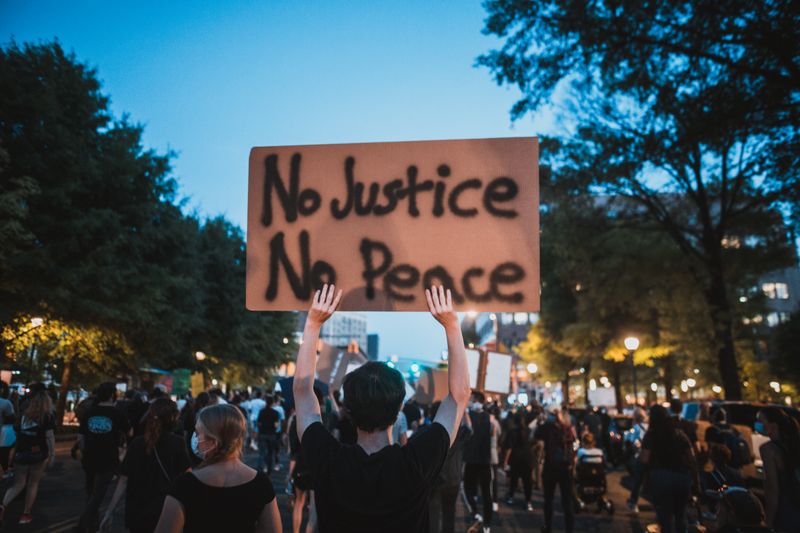Table of Contents
Climate Activists Still Face Restrictions in UAE ahead of COP28 Climate Meeting
Amnesty International Calls for Greater Freedom of Expression and Peaceful Assembly
Amid the preparations for the upcoming COP28 climate meeting in Dubai, Amnesty International has raised concerns about the restrictive human rights environment in the United Arab Emirates (UAE). The regional director for the Middle East and North Africa at Amnesty International, Heba Morayef, criticized the need for hosts to emphasize that some form of free assembly and expression will be allowed during the conference. Morayef highlighted the limitations on freedom of expression and peaceful assembly in the UAE, including the requirement for government approval of public assemblies and the imprisonment of government critics.
Crucial Demonstrations at COP Meetings
In the past, the midweekend of COP meetings has seen public demonstrations in the host cities. However, there are concerns about the UAE‘s stance on such demonstrations and whether they will be allowed during COP28. Amnesty International argues that the meeting should be inclusive and allow all stakeholders, including Emiratis and international participants, to protest and criticize corporations and authorities, including the UAE government.
The Need for Greater Transparency
Amnesty International has called for the immediate release of the agreement between the UAE and the United Nations (UN) that establishes the legal framework for organizing and hosting COP28. The organization argues that the publication of this agreement is crucial to determining the extent to which UAE‘s national laws will apply outside of the UN venue. The potential application of draconian national laws raises concerns about the safety of individuals wishing to express their views on climate change, the meeting, or the UAE government.
Editorial: Upholding Human Rights at the Climate Table
A Test of the UAE‘s Commitment to Climate Activism
The concerns raised by Amnesty International regarding the restrictions on freedom of expression and peaceful assembly in the UAE bring into question the country’s suitability as the host of the COP28 climate meeting. Climate activism is not just about technical discussions and policy negotiations; it is also about mobilizing public opinion and holding governments and corporations accountable. By inhibiting the right to protest and limiting dissenting voices, the UAE risks undermining the very essence of the COP process.
Expanding the Conversation on Climate Justice
The fight against climate change cannot succeed without acknowledging and addressing the structural injustices that underlie the global climate crisis. This includes recognizing the rights of indigenous communities, vulnerable populations, and marginalized groups. Freedom of expression and peaceful assembly are essential tools for amplifying these voices and creating an inclusive and just climate movement.
A Moment for Reflection and Change
The UAE has an opportunity to demonstrate its commitment to climate justice by doing away with restrictions on freedom of expression and peaceful assembly, not just during COP28 but permanently. By embracing dissent and allowing space for public demonstrations and critique, the UAE can foster a more robust exchange of ideas and engage in constructive dialogue on tackling climate change.
Advice: Ensuring an Inclusive and Safe COP28
Transparency and Accountability
The UAE should prioritize transparency and make the agreement between the country and the UN regarding the organization and hosting of COP28 available to the public. Transparent processes build trust and enable constructive engagement, ensuring that concerns about human rights are adequately addressed.
Engaging Civil Society
To ensure the success of COP28, the UAE should actively engage with civil society organizations, including climate activists and human rights groups. By creating opportunities for dialogue and collaboration, the UAE can foster an environment that embraces diverse perspectives and encourages meaningful participation.
Protecting the Right to Protest
The UAE should guarantee the right to peaceful assembly and expression for all participants during COP28. This includes providing appropriate spaces and safeguards for public demonstrations. The importance of these demonstrations in raising awareness and mobilizing action on climate change cannot be understated.
Setting a Precedent for Future Climate Meetings
As the host of COP28, the UAE has the opportunity to set a positive precedent for future climate meetings. By demonstrating a commitment to freedom of expression and peaceful assembly, the UAE can inspire other countries to uphold human rights while addressing the urgent global challenge of climate change.
In conclusion, the concerns raised by Amnesty International regarding the limited freedoms in the UAE highlight the need for a more inclusive and rights-respecting approach to COP28. The UAE should seize this opportunity to not only make the conference a success but also demonstrate its commitment to climate justice and global cooperation. By prioritizing transparency, engaging civil society, protecting the right to protest, and setting a positive precedent for future conferences, the UAE can play a crucial role in advancing the fight against climate change and ensuring a just and sustainable future for all.

<< photo by Kelly >>
The image is for illustrative purposes only and does not depict the actual situation.
You might want to read !
- Injustice Behind Bars: The Imprisonment of a Saudi Psychiatrist
- Unearthing the Truth: Addressing Discrepancies in the Pylos Shipwreck Investigation
- Addressing Discrepancies: Demanding a Human Rights-Compliant Inquiry into Greece’s Pylos Shipwreck
- Navigating Justice in Post-Conflict Yemen: A Proposed Framework
- Perils of Progress: Intolerance and Intimidation Force LGBT Conference in Indonesia to Suspend Operations
- The Urgency of Addressing the Climate Crisis: Navigating Through an Unprecedented Environmental Turmoil
- A Triumph for Environmental Rights: Amnesty International and Allies Awarded Coveted Human Rights Prize
- Iraq’s Draft Laws: Undermining Freedom of Expression and Peaceful Assembly